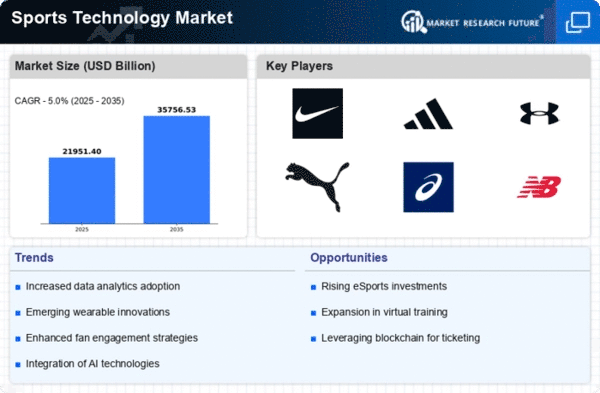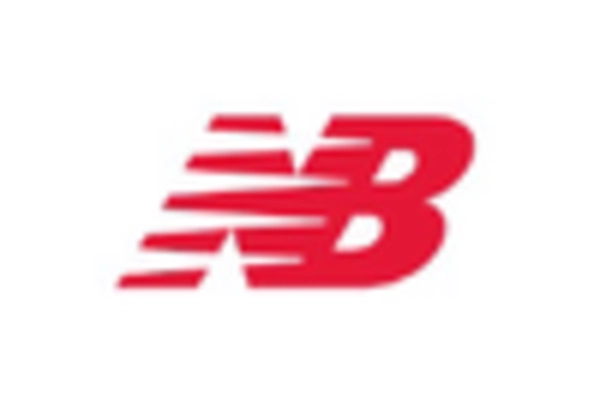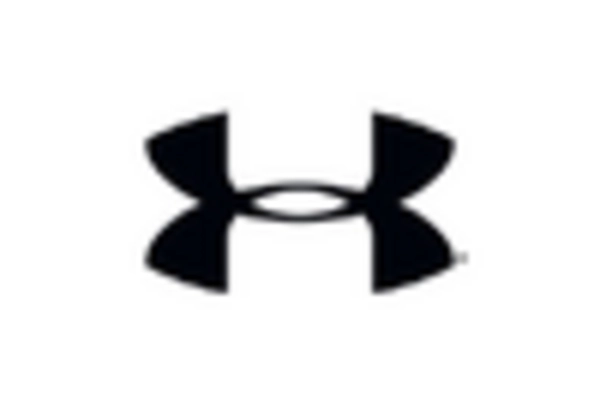Market Trends
Key Emerging Trends in the Sports Technology Market
The Sports Technology market has witnessed a transformative surge in recent years, redefining the landscape of sports and fitness. Advancements in technology have permeated every aspect of the sports industry, leading to several key trends that shape the market. One notable trend is the widespread adoption of wearables and smart devices in sports. Athletes and fitness enthusiasts are increasingly relying on smartwatches, fitness trackers, and other wearables to monitor performance metrics, track fitness goals, and enhance training regimes. These devices provide real-time data on factors such as heart rate, distance covered, and calories burned, empowering individuals to optimize their workouts and improve overall health.
Another significant trend in the Sports Technology market is the integration of augmented reality (AR) and virtual reality (VR) in sports training and fan engagement. AR and VR technologies offer immersive experiences, enabling athletes to visualize complex game scenarios, analyze tactics, and enhance their decision-making skills. On the fan side, AR and VR bring spectators closer to the action through virtual stadium experiences, 360-degree views, and interactive content, transforming the way people engage with sports events.
The rise of data analytics and sports performance analysis is a key driver in the Sports Technology market. Teams and athletes are leveraging data-driven insights to optimize training strategies, prevent injuries, and enhance overall performance. Advanced analytics platforms offer a comprehensive understanding of player metrics, game statistics, and tactical patterns, empowering coaches and athletes to make informed decisions for improved outcomes on the field.
Esports and gaming have become integral components of the Sports Technology landscape. The rapid growth of competitive gaming has led to increased investments in esports infrastructure, streaming platforms, and gaming technologies. Esports tournaments now attract massive global audiences, creating new opportunities for sponsorships, advertising, and merchandise sales. The convergence of traditional sports and esports is evident as sports organizations and leagues establish their presence in the gaming world.
Innovations in sports equipment are contributing to the market trends of Sports Technology. Smart equipment, such as sensor-equipped basketballs or tennis rackets, provides real-time feedback on technique and performance. This trend not only enhances the training experience for athletes but also offers a new dimension to fan engagement as spectators can access data-driven insights during live events.
The market is witnessing a surge in the development of sports-focused apps and platforms. These applications cater to various aspects of sports, including fitness tracking, training programs, social networking for athletes, and sports betting. The proliferation of mobile devices has made sports-related content and services easily accessible to a global audience, creating new avenues for fan engagement and revenue generation.
Sports Technology is also contributing to advancements in sports medicine and injury prevention. Wearable devices and biomechanical sensors assist in monitoring athletes' health and identifying potential injury risks. Rehabilitation programs are increasingly incorporating virtual reality to create immersive exercises that aid in the recovery process. These technologies not only enhance athlete well-being but also extend their careers by minimizing the impact of injuries.

















Leave a Comment